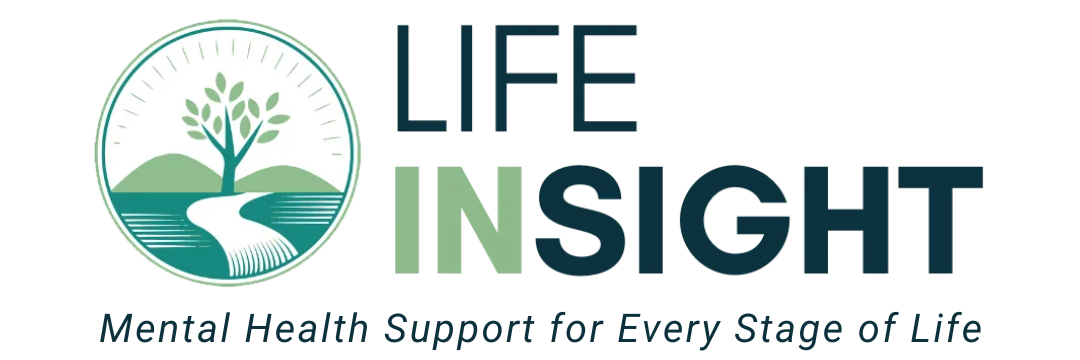Mental Health Support for Every Stage of Life
Struggling with anxiety, depression, trauma, or life transitions? At Life InSight, we offer expert therapy and psychological services to help you overcome challenges, build resilience, and regain balance. Whether you're seeking individual support, family counseling, or specialized evaluations, we provide personalized, evidence-based care to fit your needs.
- Individual, Family & Group Therapy – In-person and virtual options available
- Comprehensive Psychological & Neuropsychological Evaluations
- Parent & Educational Support Services
- Targeted Therapy for Anxiety, Depression, Trauma & More
Schedule a Consultation Today!
Personalized Mental Health Services
At Life InSight, we provide expert guidance in a safe, supportive environment, ensuring every client receives the right care for their unique needs.
Our Services Include:
- Diagnostic & Neuropsychological Evaluations – Get clarity on learning, behavioral, and emotional challenges
- Educational Services & Program Development – Support for students, schools, and families to ensure each child is making appropriate progress
- Disability Assessments & Transition Planning – Guidance for navigating life changes and accommodations for individuals with a learning or developmental disability
- Individual Psychotherapy – Personalized therapy to address anxiety, depression, and emotional challenges
- Family & Parent Counseling Services – Strengthen relationships and develop effective communication strategies
- Group Therapy & Social Skills Training – Build confidence, resilience, and connection with others
- In-Person & Telehealth Therapy – Flexible options for care that fits your lifestyle
Take Control of Your Mental Health – Learn More Today!
Areas of Expertise
How It Works – Start Your Journey Today
Step 1
Free Consultation
- Call for a free consultation with our intake coordinator
- Get personalized recommendations on the best therapist for you
Step 2
Intake & Assessment
- We gather a comprehensive understanding of your unique challenges
- Diagnostic evaluations (if needed) to develop an effective plan
Step 3
Personalized Treatment Plan
- A focused roadmap tailored to your goals, needs, and values
- Clear steps to help you feel better, faster
Success Stories
Why Choose Life InSight?
- Experienced Therapists & Psychologists – Experts in anxiety, depression, trauma, and neuropsychological assessments
- Flexible Therapy Options – In-person and telehealth sessions available
- Evidence-Based, Personalized Care – Treatment plans tailored to each individual
- Support for All Ages – Services for children, teens, and adults
Schedule a Consultation Today!
Call (201) 297-9170 or Contact Us Online to Get Started.

















